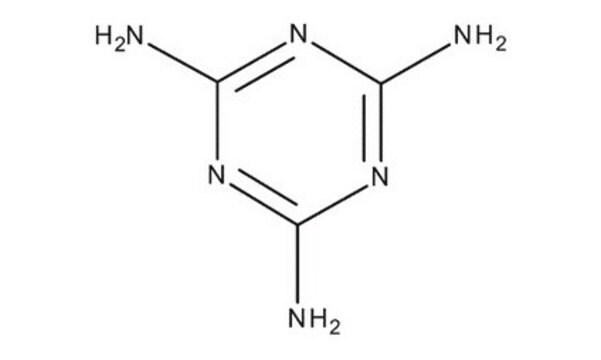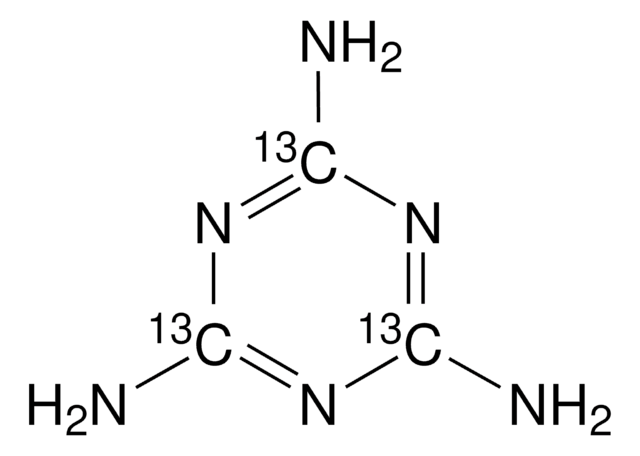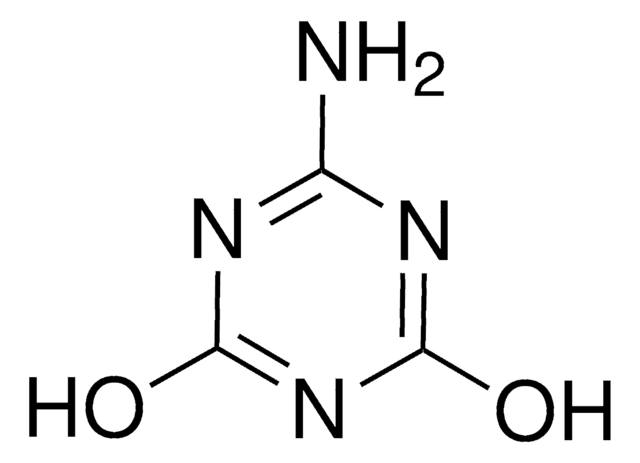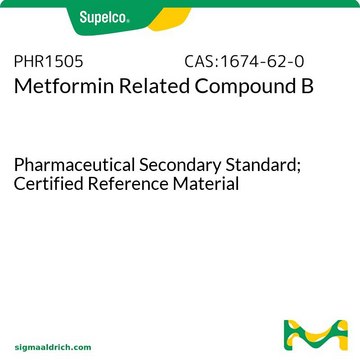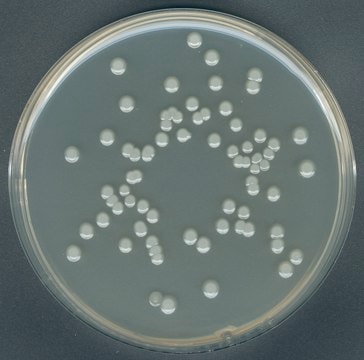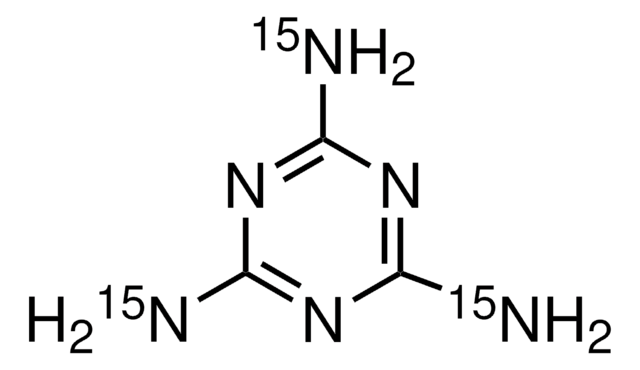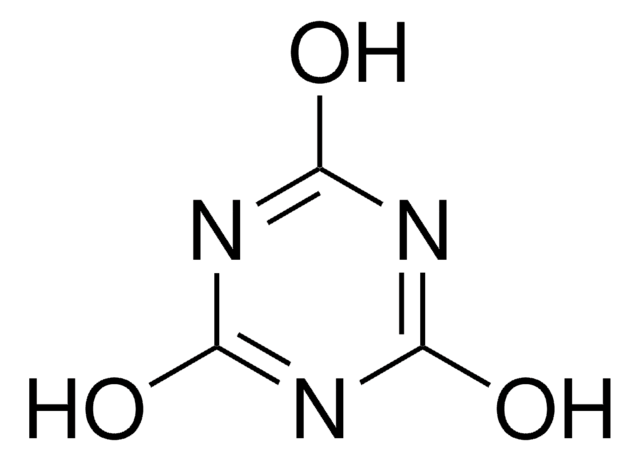1379183
USP
Melamine
United States Pharmacopeia (USP) Reference Standard
Synonym(s):
2,4,6-Triamino-1,3,5-triazine, sym-Triaminotriazine
About This Item
Recommended Products
grade
pharmaceutical primary standard
API family
melamine
manufacturer/tradename
USP
mp
>300 °C (lit.)
application(s)
pharmaceutical (small molecule)
format
neat
SMILES string
Nc1nc(N)nc(N)n1
InChI
1S/C3H6N6/c4-1-7-2(5)9-3(6)8-1/h(H6,4,5,6,7,8,9)
InChI key
JDSHMPZPIAZGSV-UHFFFAOYSA-N
Looking for similar products? Visit Product Comparison Guide
General description
Application
Analysis Note
Other Notes
Signal Word
Warning
Hazard Statements
Precautionary Statements
Hazard Classifications
Carc. 2 - Repr. 2 - STOT RE 2
Target Organs
Urinary tract
Storage Class Code
11 - Combustible Solids
WGK
WGK 1
Flash Point(F)
572.0 °F - closed cup
Flash Point(C)
300 °C - closed cup
Regulatory Listings
Regulatory Listings are mainly provided for chemical products. Only limited information can be provided here for non-chemical products. No entry means none of the components are listed. It is the user’s obligation to ensure the safe and legal use of the product.
PRTR
Class I Designated Chemical Substances
ISHL Indicated Name
Substances Subject to be Indicated Names
ISHL Notified Names
Substances Subject to be Notified Names
JAN Code
1379183-250MG:
Choose from one of the most recent versions:
Certificates of Analysis (COA)
It looks like we've run into a problem, but you can still download Certificates of Analysis from our Documents section.
If you need assistance, please contact Customer Support.
Already Own This Product?
Find documentation for the products that you have recently purchased in the Document Library.
Customers Also Viewed
Our team of scientists has experience in all areas of research including Life Science, Material Science, Chemical Synthesis, Chromatography, Analytical and many others.
Contact Technical Service
